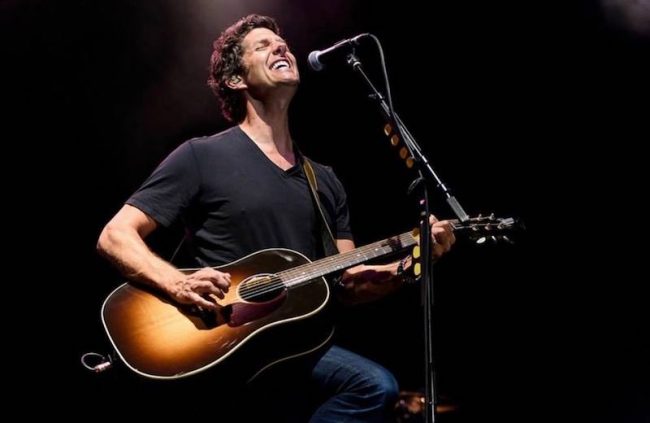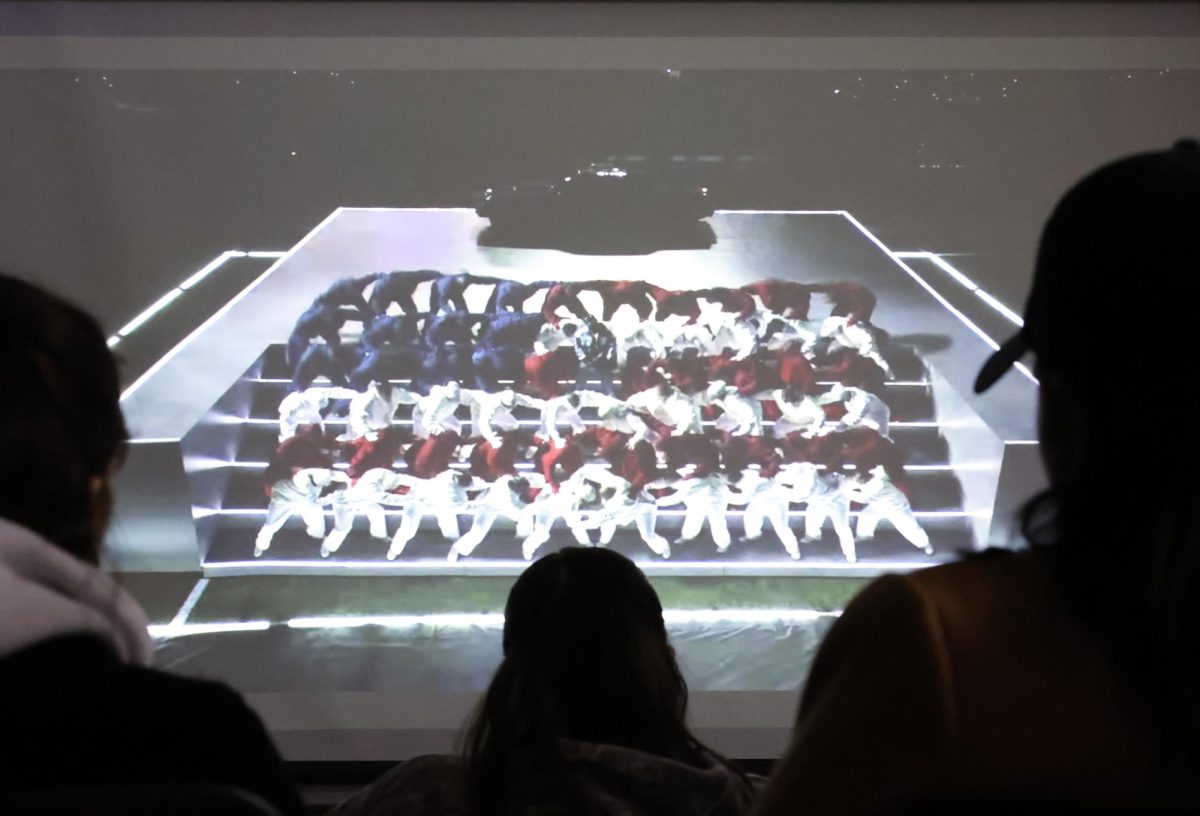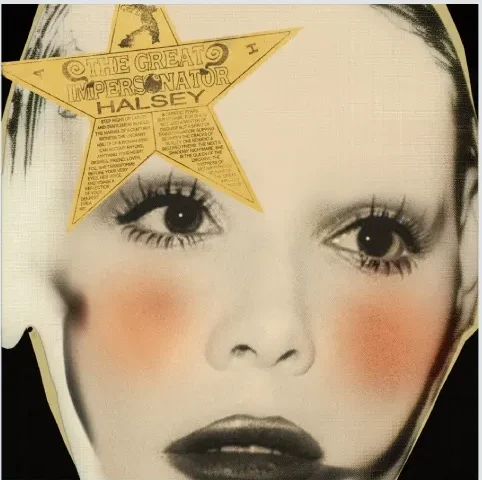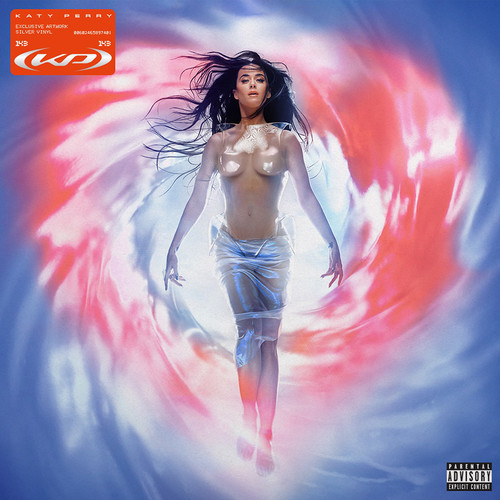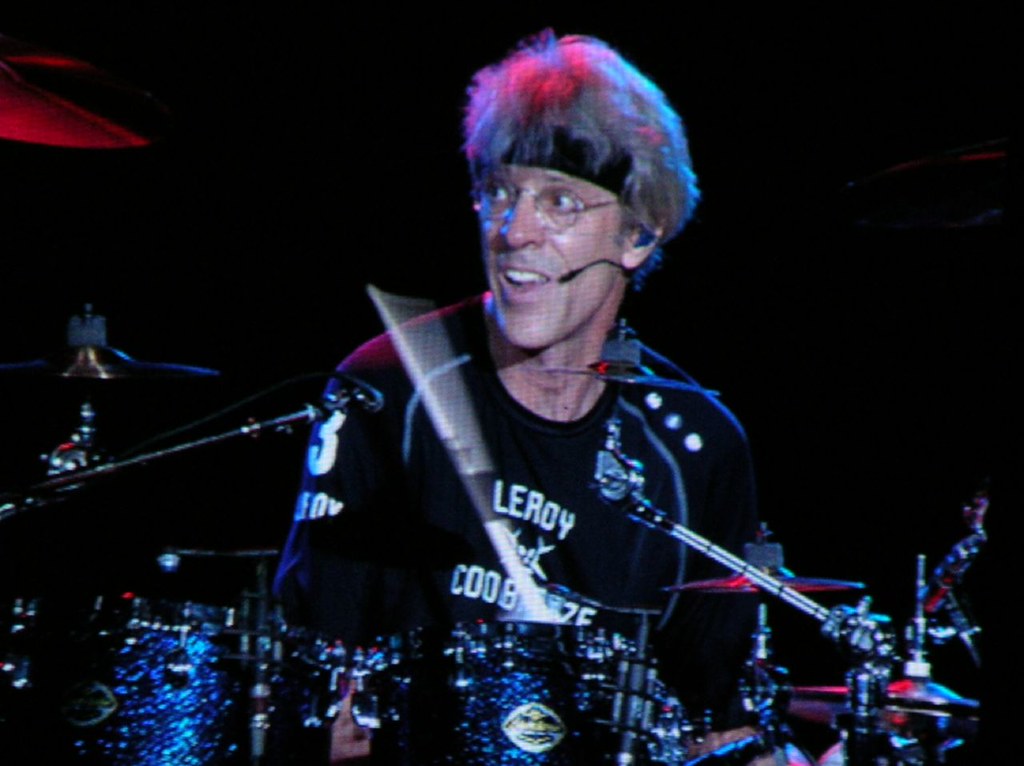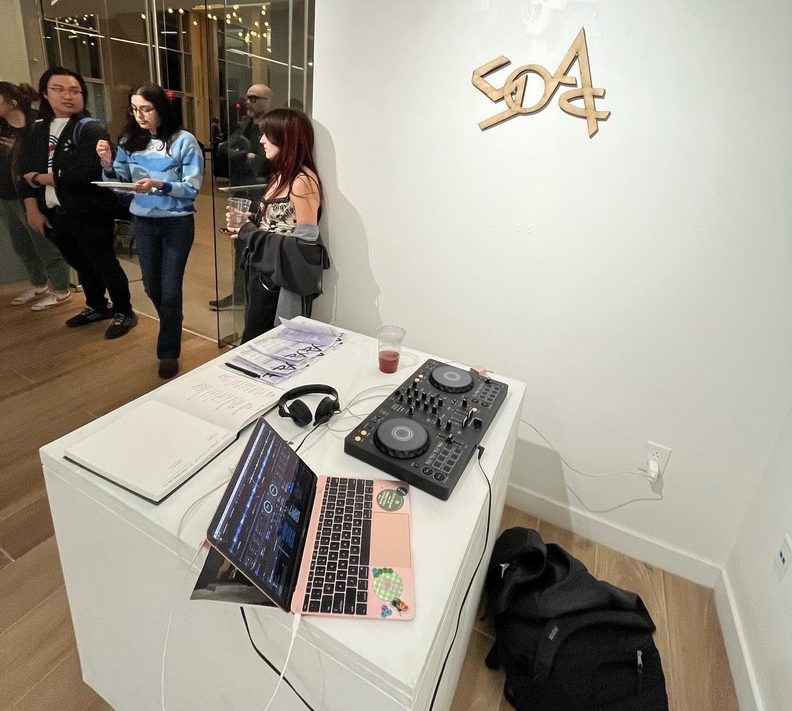Prominent songwriter and musician Kevin Griffin of Better Than Ezra is coming to The Kessler Theater Sunday, March 11 to play some fan favorites and local covers. Better Than Ezra made its claim to fame in the ’90s with the release of its 1993 platinum album “Deluxe.” The Daily Campus talked over the phone with Griffin about his greatest influences, why he picked music over law school, and what he likes about Dallas food.
Daily Campus: Hey, Kevin. Where am I calling you from today?
Kevin Griffin: I am in Palm Springs, California and it’s probably 75, it’s 9 a.m. here and I am overlooking this beautiful golf course. It’s this pretty amazing mountain view vista.
DC: Wow, that sounds really nice.
KG: It’s really fine. I was in Nashville coming out here, doing a St. Jude’s Charity benefit show tonight in Palm Springs. It’s the Patrick Wharburg invitational. You know the actor? It should be pretty fun.
DC: That’s awesome. Do you play a lot of benefit shows like that?
KG: You know what, I do probably three or four a year. Anybody who asks me if I’m available, I pretty much do it. They’re fun; they fly you in, they put you up in a great place. It’s not like it’s a hassle, it’s more like, “Uh, yeah.”
DC: What exactly made you go forward with the band after going to college and getting a degree? What made you decide to take that plunge?
KG: Great question. You know, I was the guy in college who always played music and would play at frat parties with my band — I was in a fraternity — and we played in all those bars. Music was always my love, but I was also really into school. I majored in english and political science, and I wanted to go to law school. I didn’t want to be a starving artist. I mean, always in my mind I wanted to be a successful musician, but I always needed to have a fall-back. So when I graduated, I made a pretty good score on the LSAT and had a pretty good GPA, and the score is good for three years. You know with law schools these days they don’t defer, so every year I would apply to law school and get accepted to some schools and I would continue to try to make it in music.
After college the first year, I lived in Aspen — I was a ski bum, and then I moved to LA and I was like, “I gotta try music. I gotta do this thing.” Long story short, three years went by really fast post-college and it was right about then that Better Than Ezra made our album “Deluxe.” Right about that time my LSAT ran out and I was like you know what? I gotta pursue music. I get this one chance to do it. I can always go to law school. And, here I am, 25 years later.
DC: Were you ever scared that you had made the wrong decision?
KG: Now I know that it was completely the right decision. I really know with some perspective and with some wisdom that you gotta pursue what you love. I didn’t get to that point where it was like, “Hey, it’s not gonna happen,” but you know at the end of the day, do what you love and you’ll be successful. I know that sounds like a cliché, especially if you’re in college now, but every career choice you make you’re gonna have questions about. Every career choice you make is gonna have advantages and disadvantages. If you go in to something knowing that you’ll love it, then you’re certainly increasing the odds that you’re going to have a happy and successful career.
DC: You said earlier that you were always the guy playing music, so what was it that initially got you interested in playing?
KG: Listening to music in my parents’ car. In the back seat of the car, there’s always music going on in the house. Music was the thing that inspired me from my earliest age. It’s something in your DNA that reacts to music, and that was me. It made me have a passion for playing music and being on stage. If you’re someone who’s been on stage and done plays or music or whatever, you get a taste for that. And ether you like it or you don’t, and I like it. I love being on stage. I love entertaining people. I was just born to do that. I’m lucky in that my job is that, when I’m not doing anything, I’m playing music or listening to it, and that’s pretty great.
DC: Were there any specific artists that your parents listened to that sparked your interest?
KG: Yeah, I mean, Elton John, The Beatles of course, Led Zeppelin. And then Carole King, James Taylor, Billy Joel, all of those ’70s artists. I also had an older brother, and he was into rock. He probably exposed me to music I shouldn’t have been exposed to at an early age. But then the ’80s came along and I was in middle school, and that’s when I first heard R.E.M., The Smiths, and The Pixies and stuff like that. That’s where I made my own discoveries.
It was really my environment that shaped those first songs. And I still listen to those artists. I listen to new stuff too, but the great thing was that the bar was set so high by early artists.
DC: You’ve been going at this for quite some time, and you’ve obviously played quite a few shows. How do you make every show special so the tour won’t feel so monotonous for you?
KG: I change the set up every night; the songs are always different. I’m always going to play the songs that were hits and that people know. And I take requests every show. In Dallas, for example, I’m going to comb through my favorite Dallas artists like Steve Miller and Bob Skaggs. During the set I’ll say, “This is my favorite Dallas musicians portions of the set,” and I’ll play songs by Dallas artists. I also like going and finding out interesting factoids about the town. Like “It was founded in this year by so and so.” I do it because it’s funny and silly, but it’s actually kind of interesting for me, and a lot of times people like hearing that you give a d*mn, that you know a little about the city you are playing in. And usually that kind of stuff will lead to a cover song or an anecdote.
DC: Fun fact about Dallas: I believe we are the home to the frozen margarita.
KG: Really? The frozen margarita began in Dallas?
DC: To my knowledge, yes.
KG: Well, I’m going to do my due diligence in checking that fact, but I’ll get back to you on that.
DC: Speaking of Dallas, do you have any favorite Dallas food spots?
KG: I used to love Café Brazil down in Deep Ellum. They had the best breakfasts — I always loved that. These days, it’s The Rustic that I like. I love indoor-outdoor rock strewn patios of Dallas. It’s a super unique kind of setting.
DC: When you’re not writing music for yourself, did you face any new challenges when you were writing for other artists?
KG: Yes. There’s a requirement: if I’m writing for other artists, I’ve got to be engaged in what’s going on in music. I’m an avid music listener. These bands are kids, you know? I’m 48 and these bands are 18, 19 years old. So, if I’m writing with them, I’ve got to be able to speak about the bands they’re influenced by and who they want to emulate. When I’m writing with another artist, it’s about knowing where they’re coming from so you can add to that. When I work for a band like The Struts, which is a glammy British rock band, I gotta be able to come up with an idea that I know that they are going to be into. If I come in with a song Better Than Ezra would have done 20 years ago, they’re gonna be like, “Uh, no, that’s kinda ’90s.” The cool thing is that if I’m working with other bands, it makes music continue to be fresh and have new influences.
DC: If you could write for any artist today, who would be your dream pick and why?
KG: I would love to write for Ed Sheeran. Number one: you know the song is gonna be huge. It may be a little selfish — you want to write a song with Ed Sheeran because it’s gonna be massive. But also, I love that his songwriting is real timeless and just great, classic melodies. If you listen to the song “Perfect” or “Talking to Myself,” those are chord progressions that Buddy Holly or The Beatles would have used. It’s taking classic song structure and making it fresh again. For example, if I was singing some of the songs he does, it would sound like an older guy singing songs. But put in Ed Sheeran with a cool production — it’s relevant all over again. That’s the crazy thing about melodies: what works, works. What moves people moves people. Whether it’s 30 years ago or today, all it needs is another artist to interpret that and make it fresh again.
DC: If you could give any advice to an aspiring artist, what would it be?
KG: I would say be prepared to hear “No” a lot. The business is built on “No’s.” It sounds like a cliché, but perseverance is what separates success from lack of success. Given that you’re talented and you’re good, you’re going to get your break as long as you don’t quit. When you’re not quitting, record as much, document as much, get your music out there. There are so many means: SoundCloud, BandCamp and all of these streaming services. If your music is good, it’s going to be heard by somebody who can get you to your next part in your career. There’s so many artists these days that are putting their music out on SoundCloud and the fans are out there. So, don’t quit. Learn to record yourself on GarageBand and make yourself become the captain of your own destiny.



